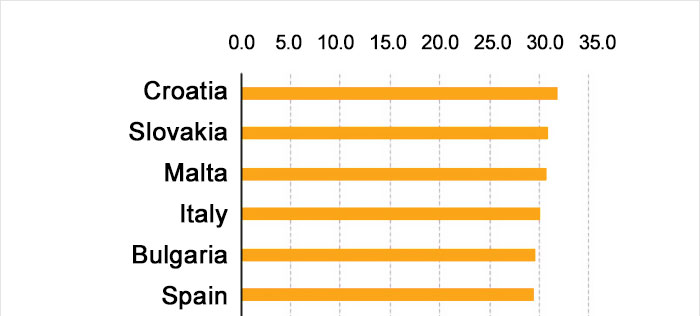5 years too late. Parents raising their kids to be snowflakes.
Tell that to Croatia, North Caucasus (Chechnya etc) Asia and the MiddleEast!
Things are different these days than in the 70s and 80s in Europe as well.

Middle East and North AfricaYoung adults still living with their parents can be found across the Arab world, where familial bonds are highly valued.
In Egypt, it's customary for young adults to live with their parents until marriage, ABC News' Randa Ali in Cairo reports. (lol, what if they never get married)
Alia, 26, of Cario, said there's a dynamic in Egyptian homes where you are still seen as a "kid" even if you are approaching 30. Young adults choose to live at home because it's "just how things are done" and it's not easy to go against the grain, she said.
"I live with my parents and would like to move out, but doing so would be seen as resentment toward home, which is not the case," Alia told ABC News. "Besides, it would be very draining in terms of arguments and could ruin my relationship with [my parents], which is something I value dearly and wouldn’t want to risk.”
“Even if, hypothetically, I was able to convince them," she added, "the move would put them and me under scrutiny from friend and family because it is an unorthodox situation."
---
Generally speaking (and that is very very over generalized), for Chinese family, it is not uncommon for adult children to live with their parents. Chinese culture traditionally favors big families where many generations of family members living under one roof.
Traditionally, female children only move out when they're married and move to their husbands home. Male children usually “separate” the inherited properties after their parents passed. Younger male children would sometimes be given separate properties to start on their own, but still belong to the same family (share the same family temple and everything).
This is particularly true in Southern provinces, where many generations of many branches of the same family living in the same, huge, community complex.
---
Japan
In conservative families, it's even expected for a man to live with his parents forever even after marriage. The idea is that it's the children's turn to look after their parents, so it's not that they're not independent.
Is it normal in Japan for a single, 35 year old man to live with his parents?
Well, it's normal, but conservatively you're expected to be married by that age.
And if you're not married for one reason or another, a lot of parents do insist on the son to live away.
However, living with parents itself is not considered a bad thing at all if the son has a job, is paying for utilities and food, and is offering a helping hand to the parents.
That said, in reality there are many 35-year-old single "parasites" who rely most things on their parents, from housework to payment.
This is considered a bad thing (although it's unfortunately normal).
By the way, Japan doesn't share the custom of sending your kids to a dorm once they're 18. If college or work is commutable from home, they stay there. Here in Japan, housing is often expensive and work can be quite hard especially for newbies, so in a way it's practical. A lot of girls are even expected to live either with her parents or her husband.
But if you're a Japanese girl, and you meet a Japanese guy who's 35, single and lives with his parents, you do tend to think, "Could he be a mama's boy?"
---
Men, African-Americans, Hispanics and less educated young people are particularly likely to live with their parents. But across all demographics, more and more people are living with Mom and DadFor the first time in more than 130 years, Americans ages 18-34 are more likely to live with their parents than in any other living situation, according to a new analysis by the Pew Research Center.